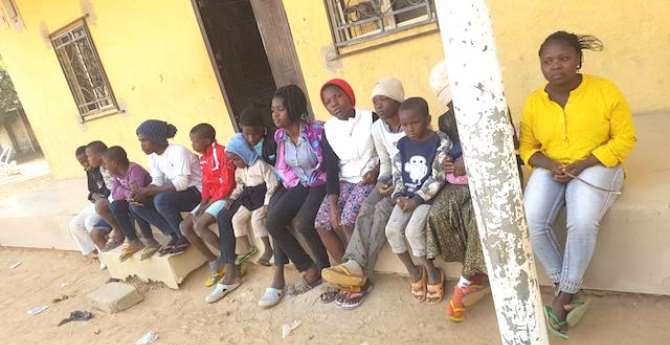Update: Soon after this article was published March 4, news arrived that Richard Solomon Musa Tarfa had that day been convicted in a Nigerian court on a charge of forgery. His law firm was awaiting additional court documents but said it believes this was a wrongful conviction on trumped-up charges.
On Christmas Day 2019, state police entered a Christian orphanage in northern Nigeria and forcibly removed 19 children in care there. Six days later, on New Year’s Eve 2019, state police forcibly entered a similar orphanage in another location and removed eight more children.
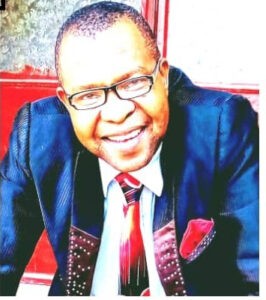
Richard Solomon Tarfa
More than two years later, the fate of most of these children remains unknown, amid allegations of abuse and forced conversions to Islam. Professor Richard Solomon Musa Tarfa, co-founder of the two orphanages, was arrested, detained and now awaits trial while out on bail. Initially, he was charged with not having a license to operate an orphanage. However, after he produced documentation proving the orphanages were, in fact, registered, the charges were changed to criminal abduction of minors.
Petition to U.S. ambassador
Now, a U.S.-based law firm has petitioned the U.S. ambassador to Nigeria, Mary Beth Leonard, with a request for her to call on the Kano State government and Nigerian federal government to immediately free the relocated orphans and punish those who wrongly took them and closed the orphanages where they previously lived.
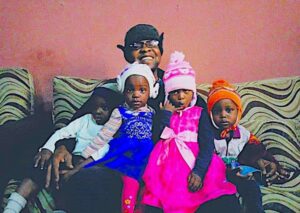
Some of the Du Merci children before they were taken away.
Meanwhile, two of the government officials at the center of the scandal reportedly have vacationed in the United States while the displaced children were left to suffer, according to the law firm’s petition. Those two officials are the governor of Kano State, Abdullahi Umar Ganduje, and the commissioner for Women Affairs and Social Development in the state, Zahrau Muhammad Umar.
“We’re gravely concerned to learn that, in addition to the governor of Kano state’s visit to the U.S. last month, his commissioner for women affairs also vacationed there as well,” the petitioners wrote. “Like Governor Ganduje, Commissioner Zahrau Umar is wholly undeserving of a U.S. visa based on disturbing reports of child abuse, human rights abuses and religious freedom abuses amongst others.”
A pattern of religious freedom violations
Last year, the U.S. Commission on International Religious Freedom, in a report on Kano State, said authorities there “have perpetrated some of the most egregious religious freedom violations” in Nigeria. Also last year, the U.S. State Department removed Nigeria from its Countries of Particular Concern list, overriding the recommendation of the Commission on International Religious Freedom and others concerned about such issues.
As a nation, Nigeria has been plagued by religious violence including kidnappings and murders and persecution, making it one of the least-safe countries on the continent.
As a nation, Nigeria has been plagued by religious violence including kidnappings and murders and persecution, making it one of the least-safe countries on the continent.
The case of the children removed from two Du Merci orphanages in late 2019 fits into this larger context.
The US Nigeria Law Firm, led by Emmanuel Ogebe, has filed the petition with the U.S. ambassador as part of a larger campaign to draw attention to the displaced children. It also alleges that Nigeria’s National Agency for the Prohibition of Trafficking in Persons, which receives U.S. funding, is complicit in the removal of the children and their improper case since then.
“U.S. citizens will find it unconscionable that their taxes are used to fund persecution of Christians and abuse of children,” the petition to the ambassador explained.
Allegations of mistreatment of children
The US Nigeria Law Firm and Ogebe charge that some of the removed children have been at times mistreated, malnourished and traumatized, and that some have become sick or injured and not received proper care. Worse, the firm charges, the Christian children have been given Muslim names and have been “Islamized.”
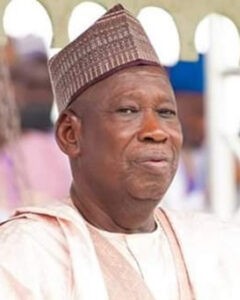
Abdullahi Umar Ganduje
“The children are reportedly emaciated, unkempt and traumatized. According to impeccable sources, the children can no longer speak English and now communicate only in Hausa, having also been deeply indoctrinated with quranic recital in Arabic,” the petition states. “Even more bizarre, the five Christian orphans are being guarded by the Hisbah religious police of Kano State, confirming the religious motive of the government in islamizing the Christian children.”
The petition alleges that “the forceful conversion of these young children is just the latest example of Gov. (Abdullahi Umar) Ganduje’s radical Islamization agenda. The governor had been featured in a viral video bribing Christian girls with cash to convert to Islam.”
Response from Kano state officials
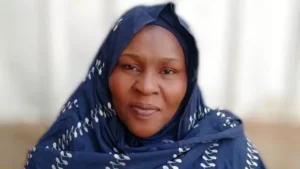
Zahrau Muhammad Umar
BNG contacted Umar, the commissioner for Women Affairs and Social Development in Kano state, Feb. 15 via phone to speak on the allegations against her and the Kano State government. She replied that the issue of the Du Merci children was beyond her and had to do with the law and justice department. She asked the reporter to contact the state’s attorney general and commissioner of justice, Musa Abdullahi Lawan, who she said was better placed to respond to the questions.
When he was reached via phone on Feb. 22, Lawan denied that the state government had anything to do with the closure of Du Merci orphanage or removal of the persons there. He said it was the police that investigated and sealed up Du Merci and that the state government merely followed up on the effort.
“The Kano State government took action through the police. You have to remember that the police is a federal government agency with the responsibility of investigating possible criminal actions,” he said. “They investigated an operation here in Kano in one of the orphanages (run) by Du Merci and in Kaduna, and investigations proved that the orphanages were being run illegally.”
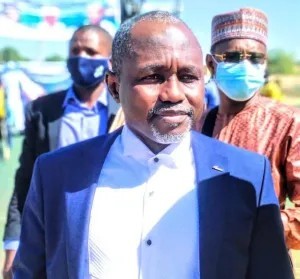
Lawan
He added: “There are laws in Kano state, and these laws have to be obeyed. You have to also remember that Kano state had a problem of kidnapped children, children that were kidnapped and later found in the southern part of the country. It’s a case that had international coverage and so, because of that, Kano state is very vigilant in regard to orphanages, and when the police investigated (on their own, without the prompting of the state government) and brought the case before the ministry of justice, the only thing for the state to do is to first of all go through the case and then file the relevant charges.”
Shedding light on how the Du Merci children came to be resettled in a government-run orphanage in another area, Lawan said: “When the police are working, they don’t tell us what they are investigating. They (police) went (to Du Merci), took the children, closed the orphanages and sent the kids to us. Of course, you know the police cannot keep the children. When they took the children, they now requested that the state government should keep them in government orphanages, and that is exactly what happened. And the case has been charged to court.”
Lawan denied that the children were not well taken care of or that one of the children who was severely injured in a fire incident in the government orphanage did not receive proper care.
“The orphanage is always open,” he said. “You can walk in today and see the condition of the children. Nobody is prevented from going to see their condition or how they are being taken care of. I assure you, this is a state you are talking about, a state government. You do not expect a state government to keep children and maltreat them. For what reason? It’s just an allegation by people trying to cause mischief.”
Lawan also dismissed claims by the US Nigeria law group that some children were Islamized or had their Christian names swapped with Islamic ones.
“I think some people are trying to turn this into a religious issue,” he said. “The allegation against Du Merci is that it was being used as a conduit to illegally send children to the southern part of the country. If we choose to bring religion into such issues, I think we will be deceiving ourselves. The issue is about an illegal orphanage until the court proves otherwise.”
And as to the U.S. Commission on International Religious Freedom’s report about Kano state perpetuating “some of the most egregious religious freedom violations” in Nigeria, Lawan again denied the charges.
“Kano State is a shining light in Nigeria in terms of religious harmony.”
The state acts within the laws of Nigeria, which guarantees certain rights, he said, adding that non-Muslims in the majority Muslim state are not discriminated against. He described Kano as a place comprising over 500 churches spread across the state where Christians are free to practice their religion without discrimination and that the level of peaceful co-existence and harmony among Christians and Muslims in the state contributes to making it the most peaceful state in Nigeria.
“Kano State is a shining light in Nigeria in terms of religious harmony,” he said.
Ogebe and the US Nigeria Law group don’t see it the same way. Ogebe told BNG that the trial of Tarfa and the ordeal of the detained children is a violation of the Nigerian constitution and an assault on the accused and his wards.
Efforts to speak to Tarfa, the Du Merci founder, were unsuccessful. A source close to him told BNG he is not able to speak to the media because of his upcoming court case and the need to allow the court do its work.
Anthony Akaeze is a Nigerian-born freelance journalist who currently lives in Houston. He covers Africa for BNG.
Related articles:
Nigerian State government shuts down Baptist school over hijab conflict
The struggle to rotate presidential power between Christians and Muslims in Nigeria

